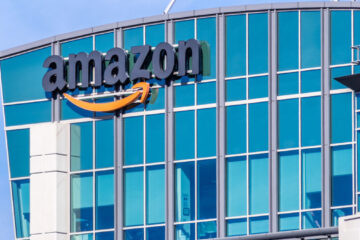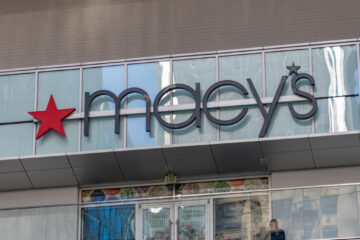Now what?
For years, AbbVie’s (ABBV) blockbuster rheumatoid-arthritis treatment, Humira, which launched in 2002, was the world’s best-selling drug.
Related: Analyst revises AbbVie stock price target on drug-sale estimates
Sales eroded, however, as Humira faced competition from lower-cost biosimilars.
Last month UnitedHealth Group (UNH) said that as of Jan. 1 it would remove Humira from some of its lists of preferred drugs for reimbursement. It recommended less expensive biosimilar versions of the medicine instead, according to Reuters.
Cigna said in August that it would remove Humira from some of its lists in 2025, following similar action by CVS Health’s (CVS) Caremark unit in April.
💰💸 Don’t miss the move: SIGN UP for TheStreet’s FREE Daily newsletter 💰💸
AbbVie CEO Robert Michael told analysts during the company’s second-quarter earnings call in July that “our ex-Humira growth platform, which covers more than 80% of AbbVie’s total sales, will outperform our initial full-year sales guidance by more than $1 billion, driven by strong performance in immunology and oncology.”
Humira sales totaled $2.8 billion in the quarter, down nearly 30% from the year-earlier quarter.
The drug’s performance in the U.S., Michael said, “continues to meet our expectations, having achieved or exceeded our guidance in all six quarters with biosimilar competition.”
Analysts are revising their price targets for AbbVie.
Shutterstock
AbbVie CEO: ‘drug continues to meet expectations’
On Oct. 17 AbbVie said the U.S. Food and Drug Administration approved a drug produced by AbbVie to treat late stage Parkinson’s disease.
The FDA approved Vyalev, generically foscarbidopa and foslevodopa, a 24-hour infusion injected below the skin that treats motor fluctuations in patients with advanced Parkinson’s.
Parkinson’s is a progressive and chronic movement disorder marked by tremor, muscle rigidity, slowness of movement and difficulty with balance resulting from the loss of dopamine-producing brain cells.
Roughly 500,000 Americans are diagnosed with the disease, the National Institute of Neurological Disorders and Stroke says. But given that many people go undiagnosed or are misdiagnosed, the actual number is likely much higher: As many as 1 million Americans may have Parkinson’s.
Related: Analysts reset targets for Eli Lilly shares
In the U.S. alone the cost of treating the disease is estimated at $14 billion annually, the institute said. Indirect costs, such as those associated with the loss of productivity, are conservatively estimated at $6.3 billion each year.
AbbVie stock began trading publicly in 2013 after Abbott Laboratories (ABT) spun off its research-based pharmaceutical manufacturing division. The shares are up nearly 22% year-to-date and 26.4% from a year ago.
In August, AbbVie completed its acquisition of Cerevel Therapeutics, which develops therapies to treat neurological and psychiatric disorders.
One of the company’s products is Emraclidine, a treatment for schizophrenia and Alzheimer’s disease psychosis.
Schizophrenia is a chronic and severe neurological brain disorder that affects roughly 24 million people, or 1 in 300 people worldwide, according to the World Health Organization.
People with schizophrenia have a significantly higher risk of developing Alzheimer’s disease and other dementias.
Analyst says market ‘rewards revenue growth’
Bank of America Securities raised its price target on AbbVie to $195 from $185 and kept a neutral rating on the shares ahead of AbbVie-Cerevel’s emraclidine data readout in Q4, according to The Fly.
Investors are debating the potential outcome of the Empower-1 and Empower-2 Phase 2 trials, the investment firm said. That’s especially in the context of the recent approval of Bristol Myers Squibb’s (BMY) KarXT and data from Neurocrine’s (NBIX) Phase 2 tests of the schizophrenia treatment NBI-568.
While investors generally expect emraclidine’s efficacy to align with KarXT, recent data from Neurocrine’s NBI-568 have raised at least some concern about the potential risk of emraclidine underperforming relative to KarXT in its pivotal trials, B of A said.
The investment firm said that it remained “optimistic about the readout” and is raising its multiple for AbbVie.
More Health Care:
Humana hit by troubling Medicare Advantage changeThese new money and health findings might surprise youMany Americans fear Medicare won’t be there when they need it
AbbVie is scheduled to report quarterly results on Oct. 30.
BMO Capital raised its price target on AbbVie to $220 from $214 and affirmed an outperform rating on the shares as part of a broader research note previewing third-quarter results in biopharma.
The company’s Skyrizi and Rinvoq immunology drugs are now well-appreciated on Wall Street as significant growth levers within AbbVie’s portfolio, although the third-quarter analyst consensus continued to underestimate the growth seen from scrips in the quarter and over the previous quarters, the firm said.
Related: Analysts reboot Intuitive Surgical stock price target ahead of earnings
In Q2 Skyrizi sales rose 45% to $2.7 billion while Rinvoq’s revenue climbed 56% to $1.4 billion.
“Skyrizi and Rinvoq are performing exceptionally well, contributing more than $4.1 billion in combined sales this quarter, reflecting operational growth of 50% in their fifth full year on the market,” Chief Commercial Officer Jeffrey Ryan Stewart said during the July earnings call.
Bernstein analyst Courtney Breen initiated coverage of AbbVie with a market perform rating and $203 price target.
The firm kicked off coverage on U.S. biopharma and is optimistic on the outlook for the industry.
However, in-line sector stock performance versus the S&P 500 Index and historically average valuations combined with increasing industry pressures suggest that investment outcomes will be more tied to specific company opportunities, Breen said.
The analyst said the market “clearly rewards future revenue growth – as a marker of portfolio reinvention.”
Breen believes commercial realization will be increasingly constrained by concentration of competition and growing regulatory pressures.
Related: Veteran fund manager sees world of pain coming for stocks


